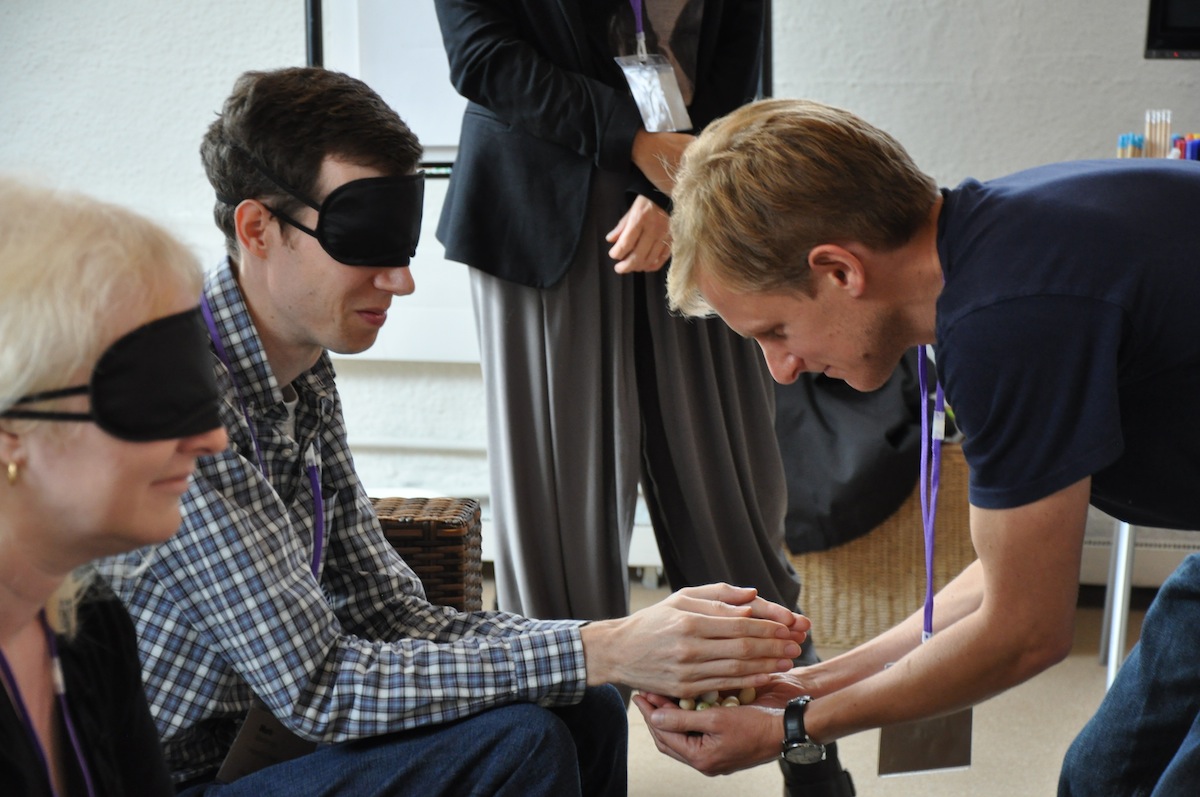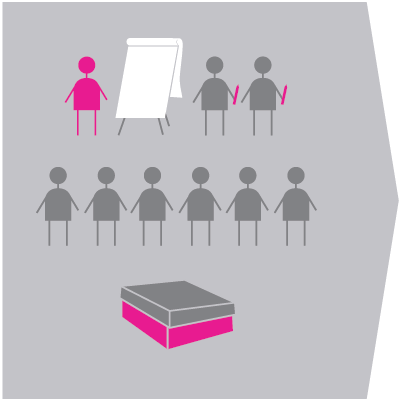
▼
Solve a design challenge during 4 x creative sessions
▼

- MEX facilitator: guides team with questions & support
- Brunel designers: contribute ideas & visual skills
- Everyone: solves team challenge through collaboration
- Kit: examples & creative tools

- Understand the challenge, explore examples
- Exercises to iterate response
- Refine response, rehearse & critique internal presentation
- Distill & visualise insights into final presentation

- 5 reusable design principles
- Clear visual summary
- Present in 5 minutes
Transforming the experience of location. By examining the use case of cyclists, participants will seek new ways of using location data and mapping techniques to build better digital experiences.
What interface do your want for you body? Digital is getting ever close to tracking our health and personal traits. Participants will seek design principles to make those experiences rewarding and human, recognising that technological advances alone are insufficient to overcome the valid fears users have about these developments.
Shaping the digital experience in response to proximity. This sessions explores 'nearness' as a subtlety governing our relationship with digital technology, seeking to understand principles for how we might connect with everything from devices in arm's reach to the homes, offices and public spaces we occupy.
As machines gain the ability to move and take decisions for themselves, how does digital experience change when the consequences extend beyond the virtual sphere? From home heating systems to self-driving cars, what principles should we adhere to when building the robot actors of the future? As machines gain the ability to move and take decisions for themselves, the consequences of digital experience extend beyond the virtual sphere. How do we create technology-enabled products which facilitate human creativity and enrich our lives, instead of getting in our way and causing problems? From home heating systems to self-driving cars, what principles should we adhere to when building the robot actors of the future?
Does digital create the possibility of truly new forms of information consumption? Streaming has replaced CDs and YouTube has replaced DVDs, but most new media is recognisably similar to its predecessors. What could be the user experience of a new category, which transcends existing media?
The result is you leave MEX with a tangible return on your investment: a series of visual outputs from your challenge, close relationships with your MEX team members and inspiring new concepts to try when you get back to the office. Here's an example of the results from the May 2011 working sessions, focused on multi-touchpoint user experience design:
Download the PDF (about 20 Mb).

